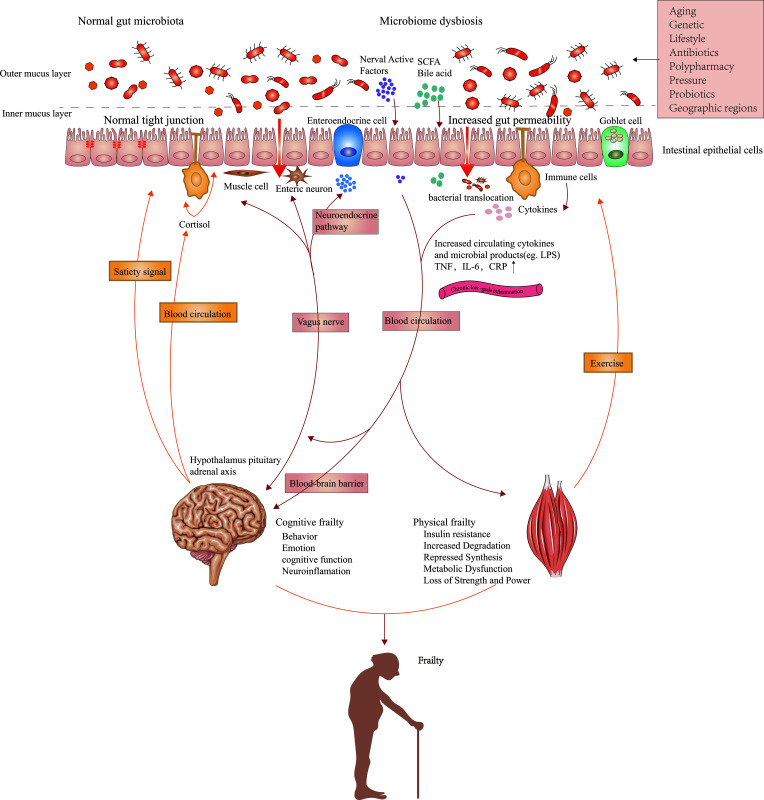Figure 1.
Possible mechanisms linking gut microbiota composition, chronic low-grade inflammation, and frailty. Impairments in the intestinal barrier caused by aged gut microbiota can promote the penetration and systemic dissemination of microbiota and its metabolites, which then leads to chronic low-grade inflammation by promoting the expression of proinflammatory factors. Metabolites from commensal microbiota as well as peripheral inflammation affect protein breakdown and synthesis in the muscle via multiple signaling pathways that result from inflammation and insulin sensitivity. The effects of muscles on gut microbiota are mainly realized by exercise. The brain controls the composition of gut microbiota by influencing peptides regulating satiety signals, intestinal function, and the secretion of neural chemicals. Intestinal dysbacteriosis affects inflammation and neurodegeneration in the central nervous system via immune, vagal, and neuroendocrine pathways, which ultimately lead to impaired cognitive function. Gut microbiota can also indirectly cause the onset of sarcopenia and physical frailty by affecting food intake.

